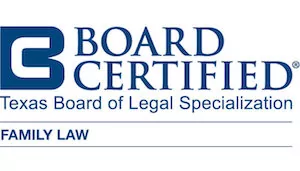
Given the strain divorce imposes on individuals and children, couples should consider engaging in processes that mitigate conflict and negative emotions. While mediation may not be the best course of action in every divorce, it is important that individuals consult with an attorney to discuss whether mediation is a viable option. The Pearland divorce mediation lawyers at the Ramos Law Group have extensive experience securing favorable outcomes in Texas divorce cases. An attorney for divorce mediation in Pearland, TX, can discuss your options with you and guide you through the divorce process.
What Is Divorce Mediation and Its Benefits?
Mediation generally refers to a confidential and voluntary process that aids parties in conflict in coming to agreements without using the court system. The Texas Family Code allows mediation if both parties agree; however, sometimes, a court may refer a divorce case to mediation.
A neutral third party facilitates conversations between the spouses (and their lawyers) during mediation. Mediators do not provide legal or personal advice and make no recommendations. Instead, they use their skills and experience to facilitate positive interactions between the parties. Ultimately, the goal of mediation is to reach a mutually acceptable divorce agreement.
Benefits of Divorce Mediation
Compared to litigation, mediation allows parents to reach equitable settlements and positively affect some aspects of postdivorce relationships. Compared to formal litigation, mediation focuses on a cooperative dispute resolution model. With this approach, the parties may change their patterns of interaction and prevent the hostilities that can stem from court proceedings. Some of the other benefits of divorce mediation include the following:
- Lower costs compared to adversarial divorces,
- Faster than litigation,
- Allows the couple to have more control and flexibility,
- Reduces emotional stress, and
- Provides for the resolution of emotional issues while preserving respect.
It is important to note that while mediation provides a less stressful option for completing a divorce, the implications of an agreement are long-standing and can impact many aspects of a person’s life. Further, mediators do not advise or counsel the parties on whether they are making a bad deal. For this reason, it is important that anyone considering divorce mediation consult with a Pearland divorce mediation lawyer to discuss their rights and responsibilities.
When Is Mediation a Suitable Choice?
Texas permits “agreed divorces,” which are uncontested divorces available to couples with property to divide, minor children, or both. These divorces are only allowed when the parties have reached an agreement regarding the following:
- Conservatorship (decision-making for children),
- Possession (visitation),
- Child support,
- Property division, and
- Spousal maintenance.
Parties experiencing roadblocks to reaching an agreement on these issues can pursue mediation to help resolve divorce disputes. Moreover, those who have yet to agree on the pertinent issues can use mediation while a case is proceeding.
Despite the many benefits, mediation may not be a suitable choice in cases of domestic violence or where there is the potential for exploitation because of unequal bargaining power. Under Texas law, victims of family violence whose divorce case has been referred to mediation may file an objection to the referral. Once the party objects, the court should not order mediation unless the other party asks for a hearing.
Process of Divorce Mediation in Texas
Divorcing couples can begin mediation before or after either party has filed a divorce petition. The court may order the parties to go to mediation after the filing, or the parties may decide to attend mediation before the court finalizes the divorce decree.
Texas does not have specific statutes or rules regarding divorce mediation procedures. However, most Texas divorce mediations follow these steps:
- Orientation,
- Issue identification,
- Information gathering, and
- Negotiations.
At the end of the process, the divorce mediator usually works with the parties’ attorneys to prepare a written agreement.
Mediation Settlement Agreements
A mediated settlement is binding only if both parties agree for it to be binding. Texas Family Code provides the requirements of a binding mediated agreement. After the parties sign a settlement agreement, they must prepare and file the final divorce documents. These documents include the following:
- Proposed final divorce decree, and
- Motion to enter judgment.
The parties are entitled to a final divorce decree if the mediated settlement agreement abides by Texas’s requirements.
However, a court may reject the final divorce decree in the following situations:
- The family court judge finds that the settlement resulted from fraud, duress, or coercion or was illegal; or
- The agreement is not in the best interests of the child, and either a spouse’s decision-making ability was impaired because of being a domestic violence victim or the agreement allows unsupervised access to a child by a parent with a history of physical or sexual abuse.
A divorce becomes final after a judge signs the final decree, which generally must be at least 60 days after the filing party filed the initial divorce papers.
Speak with the Pearland Divorce Mediation Attorneys at the Ramos Law Group
If you foresee divorce in the near future and hope to avoid litigation, reach out to the divorce mediation lawyers at the Ramos Law Group. At the Ramos Law Group, our attorneys have decades of experience making the already difficult process of divorce easier on our clients. We are skilled negotiators who understand what it takes to reach an agreement, even when it seems impossible at the outset. At the same time, we zealously pursue our clients’ best interests, doing everything possible to ensure an end result that meets or exceeds their expectations. To learn more and to speak with a Pearland divorce mediation lawyer at the Ramos Law Group, call 713-597-7274. You can also connect with us through our secure online contact form.










